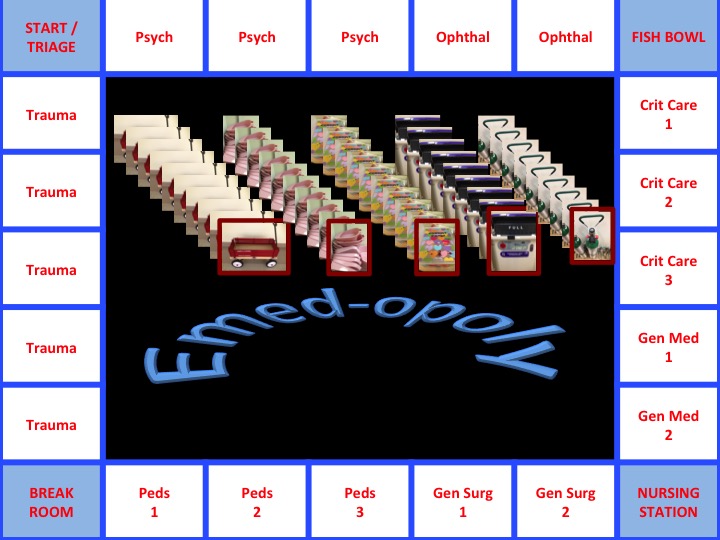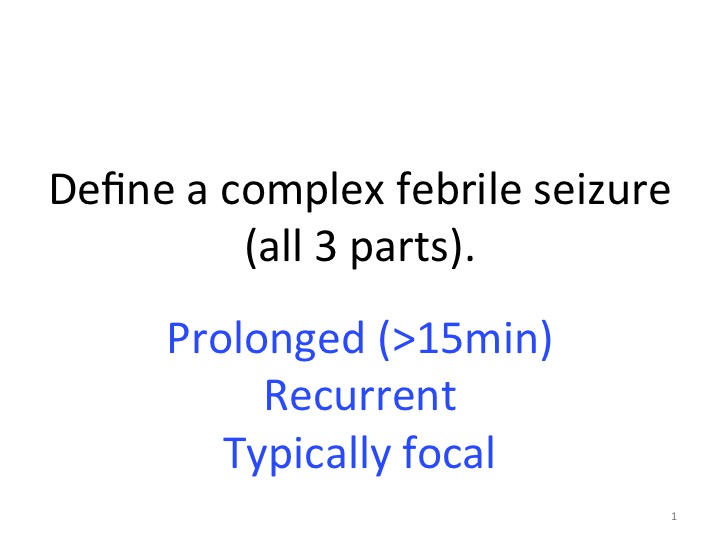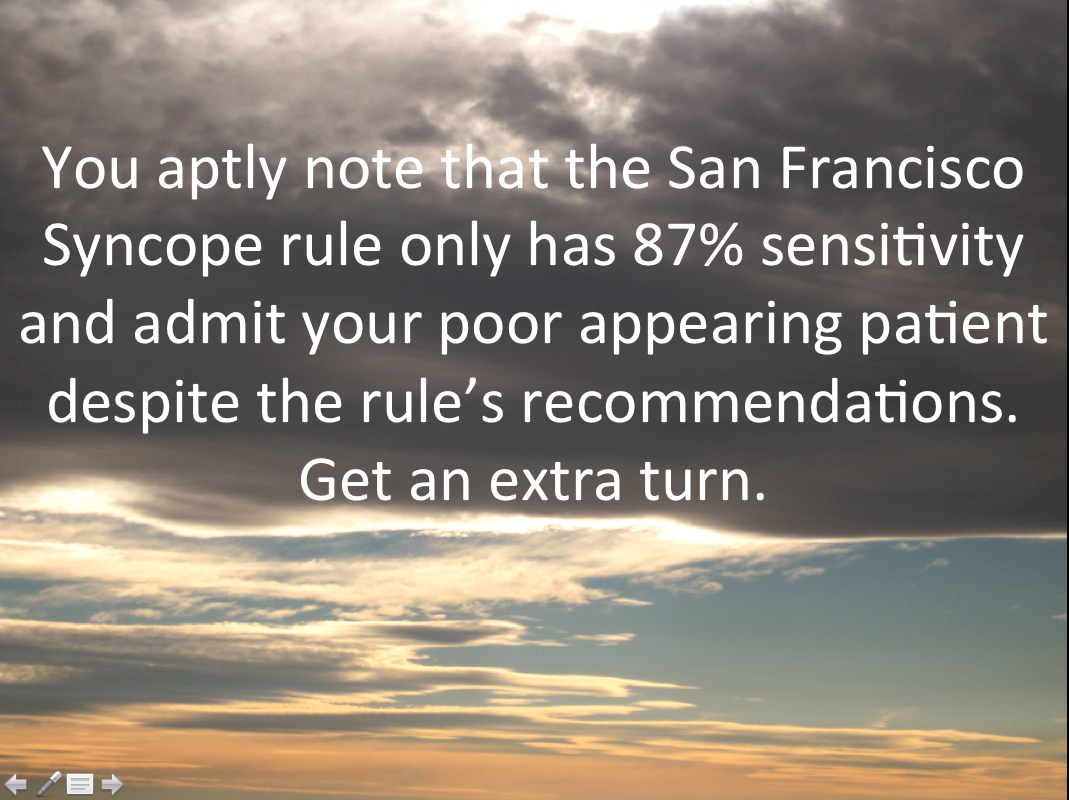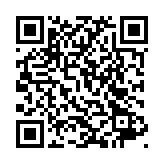ePoster


EMed-opoly: A New Item Recall Technique for Trainee Conferences

Theme
4BB Teaching tools
INSTITUTION
Stanford/Kaiser Emergency Medicine Residency Program - Emergency Medicine - United States of America
Background
- Item recall is an established fundamental learning tool with evidence that it is superior to standard content mapping (Karpicke 2011).
- Jeopardy has been used in medical education as a game form of item recall (Khan 2011), but it is difficult and labor intensive to build the game.
- We tested a Monopoly format as a game version of item recall for emergency medicine residents at a single insitution. The pilot topic was pediatric fever, but any topic can be used.
Summary of Work
Game Rules (see video for example):
- 3-5 teams of 4-8 learners each. Teams compete to own the most "rooms" (board squares) by answering questions correctly when they land on "rooms."
- One projector shows the game board (Fig 1), the other projector shows "cards" (slides) seen in Fig 2. If a second projector is not available, the game moderator can simply read the questions aloud (as in the video).
- A team's turn starts by rolling a single die, then viewing the "card" for that turn. (We used a giant die made of an old cardboard box that provided additional entertainment to the learners.)
- If a question card is drawn, the team has 30 seconds to answer the question.
- If the team answers correctly, an extra game piece from their team is left from the center of the electronic game board to the room (square) to mark it as theirs, and the next team rolls.
- If the team answers incorrectly or does not answer within 30 seconds, that team's turn is over, and the next team rolls the die.
- If a "white cloud" card (Fig 3) or "black cloud" card is drawn (similar to Chance cards), the team follows the instructions on the card. The cloud cards are a variety of humor (e.g. "Your program director found out you didn't log duty hours for 3 months! Lose a turn.") and additional instruction included in the card narrative (e.g. that the San Francisco Syncope Rule is only 87% sensitive, as in the example card in Fig 3).
- If a question card is drawn, the team has 30 seconds to answer the question.
- If a team lands on a room owned by another team, a "code" ensues; the teams race to be the first to answer a single question correctly; winner owns the room.
- Game ends when all of the rooms are owned or the pre-determined alloted time (e.g. 1 hour) expires.

Figure 1. Game Board


Figure 2. Example Question card. The blue answer Figure 3. Example White Cloud card.
appears only after an additional click by the instructor.
Summary of Results
- 69% (18/26) of house officers responded (AAPOR RR Definition 5), PGY(post-graduate year)1=8, PGY2=5, PGY3=5.
- 78% of the 18 respondents preferred the game to traditional lecture.
- Question detail was deemed appropriate by 16 (89%) of respondents, while one person reported that questions needed to be more detailed and one person reported less detailed.
- The majority (10/18, 55%) felt that the game pace was appropriate, but most dissenters (7 of 8 dissenters) thought the game should move faster and suggested reducing the amount of time allowed to answer questions and the amount of discussion time around questions.
- Free response comments were supportive, e.g. "Loved it!...Will definitely remember more from that lecture than any other lecture that day."
- Short preparation time by instructor to prepare the game, approximately 1 hour to prepare question slides. The game board is applicable for any set of questions, which means instructors only need to design questions for different topics.
Conclusion
- Novel game format well grounded in educational educational psychology, easily adaptable to different topics.
- Well received and supported by house officer learners.
- Subjectively effective according to participants.
- Much shorter instructor preparation time than the Jeopardy alternative.
Game reesources are available for free download at: https://www.mededportal.org/publication/9706, or follow the QR code.

Secure site for free download of materials.
Acknowledgement
We wish to thank the students and faculty who participated in this experimental game and the Department of Emergency Medicine, Stanford University, USA.
CONTACT THE AUTHORS:
Andrew Phillips
warejko@stanford.edu
References
- Karpicke JD and Blunt JR. Retrieval practice produces more learning than elaborative studying with concept mapping. Science. 331(6018):772-5.
- Khan MN, Telmesani A, Alkhotani A, et al. Comparison of jeopardy game formt versus traditional lecture format as a teaching methodology in medical education. Saudi Med J. 32(11):1172-6.
 Send Email
Send Email